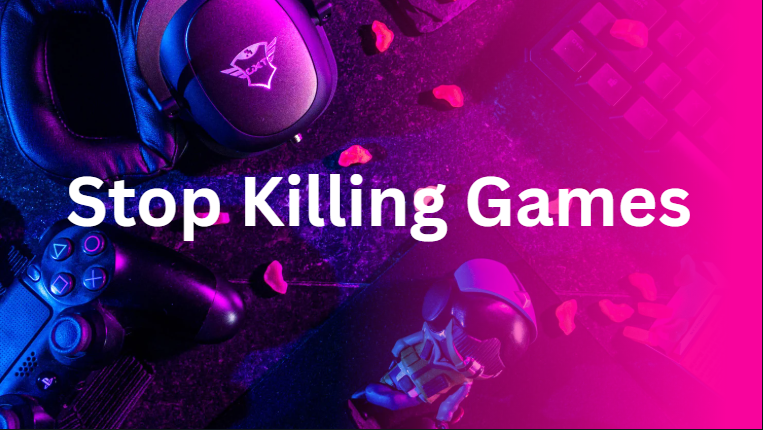What Does It Mean to “Stop Killing Games”?
There is a growing online movement called “Stop Killing Games” in which gamers ask game companies and developers not to shut down or remove games forever. It’s about saving games from being deleted, turned off, or made unplayable. Today, many games only work online or require servers to function.
When these servers are shut down, the game disappears.
The Reasons Games Are Shut Down There are many reasons why companies kill games. Here are a few:
Companies stop supporting a game if it is not making enough money. Outdated technology: Some old games no longer work with new systems.
Licensing issues: Rights to music, names, or other content may expire.
Also Read : Nipah Virus
The Impact of Killing Games
Loss of Access
Gamers can no longer play the game they bought. I find that unfair.
End of Communities
Multiplayer games create online friendships and communities. Shutting them down destroys these social spaces.
Gaming History Is Lost
Digital history includes games. Killing them erases a piece of that history.
Waste of Money
If a game is removed forever, people lose what they paid for. This can feel like a scam to players.
Why the “Stop Killing Games” Movement Is Important
Players care about preservation.
Trust is damaged when games are stopped. Gaming is both art and culture, not just business. The movement asks for better solutions, like
When servers are turned off, offline modes are activated.
Keeping games playable even if no updates are coming.
Real Examples of Killed Games
Project Spark—A creative platform by Microsoft, killed in 2016.
The Crew (Ubisoft)—Removed from stores and unplayable as of 2024, even for owners.
These are just a few cases where players lost access with no refund or alternative.
What Can Be Done to Save Games?
Add Offline Mode
It’s the simplest method for keeping games alive.
Open Source or Release Server Code
Let the community run their own servers. This keeps multiplayer alive even after official support ends.
Make Video Games Available Even if the company moves on, they can keep the game on stores like Steam or Epic.
Support Game Preservation Groups
Companies can partner with them.
What Gamers Can Do
Spreading awareness—Talk about it on social media using #StopKillingGames.
Supporting fair game companies—Spend money on developers who respect game preservation.
Signing petitions—Join online efforts that demand change.
Giving feedback—Tell companies what you expect before buying their games.
The Future of Gaming and Preservation
As technology grows, more games may become cloud-based or live-service. This means that if the server goes down, future games might not even work. If we don’t act now, we could lose even more digital titles in the coming years.
They are part of modern culture, art, and shared memory. We must keep them safe.
FAQs
What is the #StopKillingGames movement?
It’s an online campaign where players ask companies not to remove or shut down games permanently.
Why do companies shut down games?
Low profits, out-of-date technology, expired licenses, and shifts in company strategy are all common causes.
Can games be saved after shutdown?
Sometimes yes—if developers release an offline version or open the code to the public.
Is it legal to keep playing games after shutdown?
It depends. Yes, if the game is hosted by fans with permission or offline. But pirating a game may be illegal in some regions.
Talk about it, support game preservation groups, and ask companies to protect the games they create.
Final Thoughts
The message is simple: Stop killing games. Games are more than just products. They are part of people’s memories, friendships, and joy. Everything associated with a game is destroyed when it is terminated by a company.

